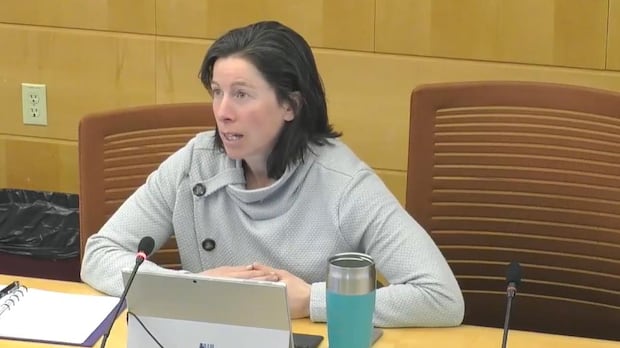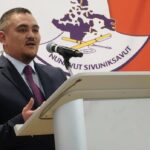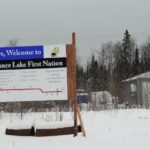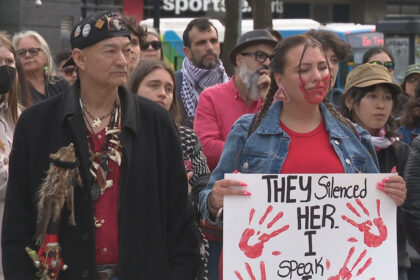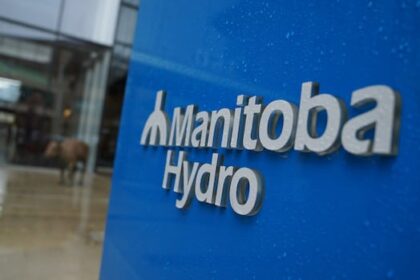NorthWhile the new Liberal government’s first budget proposes big spending on infrastructure and defence – promising to some Northwest Territories leaders – others say what’s missing are similar investments in the country’s residents, particularly those in the North. Federal Finance Minister François-Philippe Champagne tabled budget in House of Commons on TuesdaySidney Cohen · CBC News · Posted: Nov 06, 2025 7:53 PM EST | Last Updated: November 7Listen to this articleEstimated 5 minutesThe audio version of this article is generated by text-to-speech, a technology based on artificial intelligence.”This budget seems to really emphasize the physical infrastructure, and I think our greatest need right now is skilled people,” says Yellowknife North MLA Shauna Morgan. (N.W.T. Legislative Assembly )The new Liberal government’s first budget proposes big spending on infrastructure and defence, which is promising to some Northwest Territories leaders, but others say what’s missing are similar investments in the country’s residents — particularly those in the North. “This budget seems to really emphasize the physical infrastructure, and I think our greatest need right now is skilled people,” said Yellowknife North MLA Shauna Morgan.To Morgan, meeting this need means spending on the education system; certainty around Jordan’s Principle policy; money for healthcare workers; investments in job training and help attracting specialized workers to the North.“I do get the sense that Carney’s government wants to see tangible results quickly. They want to see physical evidence that something is changing,” she said. “But building the North isn’t a kind of snap-of-your-fingers transformation.”“I hope that the Carney government will understand that it’s by investing in people that you find efficiencies, as opposed to trying to remove people from the equation.”Federal Finance Minister François-Philippe Champagne tabled the 406-page budget in the House of Commons on Tuesday. For the North specifically, it included an Arctic Infrastructure Fund ($1 billion over four years); more than $67 million for Crown-Indigenous Relations and Northern Affairs Canada and the Canadian Northern Economic Development Agency to speed up regulatory processes in the North, including consultation with Indigenous governments; and a plan to assess northern health-care and health infrastructure with an eye toward increasing access and reducing medical travel costs, among other proposals.N.W.T. Premier R.J. Simpson said he was disappointed not to see a clear plan in the budget to strengthen Jordan’s Principle and the Inuit Child First Initiative. (Julie Plourde/Radio-Canada)In a statement on Wednesday, N.W.T. Premier R.J. Simpson said the budget “recognizes that Canada’s North is central to the country’s future,” and that commitments related to infrastructure, critical minerals, health care and Arctic security will create economic opportunities across the territory.But Simpson said he was disappointed not to see a clear plan to strengthen Jordan’s Principle and the Inuit Child First Initiative. Jordan’s Principle an ‘absolutely necessary investment’: MorganJordan’s Principle is a legal rule meant to ensure First Nations children get the services they need without delay, and that disputes over which government should pay for those services don’t disrupt their delivery. The federal budget notes $1.03 billion for Jordan’s Principle in 2025-2026.The budget does not, however, include any discussion of Jordan’s Principle policy.Last February, the federal government made broad changes to Jordan’s Principle administration. As a result, it largely stopped approving funding requests from off-reserve school boards in the N.W.T. The territory has since been urging Ottawa to reverse those changes and create a regionally tailored approach to Jordan’s Principle administration. MLA Morgan called Jordan’s Principle an “absolutely necessary investment” in the education of First Nations children. “If we want to ensure we’re building a skilled workforce, we need to start at the ground level with ensuring we have adequate money for education that is including all children, regardless of their needs,” she said.Sahtu MLA Danny McNeely found the budget ‘very encouraging,’ and suggested the territory could tap into funding pots for housing, health care, defence and infrastructure. (N.W.T. Legislative Assembly)Sahtu MLA Danny McNeely wasn’t expecting a big announcement about Jordan’s Principle, but he said he was heartened to see money earmarked for it. McNeely found the budget “very encouraging,” and suggested the territory could tap into funding pots for housing, health-care, defence and infrastructure. Speaking on CBC’s The Trailbreaker on Wednesday, Minister of Crown-Indigenous Relations and N.W.T. Liberal MP Rebecca Alty said a review of Jordan’s Principle is expected to be completed by the next federal budget.“When it comes to education and health-care, those were important components of the Jordan’s Principle funding, and it’s important that the territorial government and federal government work together to fund those, since education and health are at the territorial level and provincial level,” she said.Behchokǫ̀ Chief Bertha Rabesca Zoe called Prime Minister Mark Carney’s budget “a good start,” and welcomed acknowledgement of the Arctic Security and Economic Corridor. (Kate Kyle/CBC)Budget is ‘a good start’: Behchokǫ̀ chiefBehchokǫ̀ Chief Bertha Rabesca Zoe called Prime Minister Mark Carney’s budget “a good start,” and welcomed acknowledgement of the Arctic Security and Economic Corridor, a project in which the Tłı̨chǫ Government is involved. The corridor made the federal government’s second-tier list of “nation-building” projects. “We’re ready to show Canada what is possible when Indigenous partners do take the lead in driving economies,” said Rabesca Zoe. “This nation-building project that has been identified has the potential to help turn around our economy, and at the same time, strengthening Canada’s Arctic sovereignty.”She was also pleased to see attention paid to critical minerals, and money for housing. The budget includes $2.8 billion for urban, rural and northern Indigenous housing.But Rabesca Zoe had hoped to see money to help address drug problems in communities.“In order to build the economy, we need strong investments in the health and wellbeing of our people,” she said. Josée-Anne Spirito is the Public Service Alliance of Canada (PSAC) regional executive vice president for the North region. (Submitted by Josee-Anne Spirito)Residents will feel cuts to northern public service, says unionThe budget speaks of plans to cut 40,000 public service jobs over coming years from a peak in 2023-2024.“Any cuts in the public service in the North, that is already working with a skeleton crew, will result in a loss of services for Canadians in the North,” said Josée-Ann Spirito, regional executive vice president for the Public Service Alliance of Canada (PSAC) North, which represents federal workers in the three territories.She said the union doesn’t know yet which regions or departments will be affected.“We are truly concerned,” she said. “People are trying to get Canadians excited about investment in the North. That starts with investing in people, and we don’t see that happening under this budget.”ABOUT THE AUTHORSidney Cohen is a reporter and editor with CBC North in Yellowknife. You can reach her at sidney.cohen@cbc.caFollow Sidney on TwitterWith files from Shannon Scott
Friday, 6 Feb 2026
Canada – The Illusion
Search
Have an existing account?
Sign In
© 2022 Foxiz News Network. Ruby Design Company. All Rights Reserved.
You May also Like
- More News:
- history
- Standing Bear Network
- John Gonzalez
- ᐊᔭᐦᑊ ayahp — It happened
- Creation
- Beneath the Water
- Olympic gold medal
- Jim Thorpe
- type O blood
- the bringer of life
- Raven
- Wás’agi
- NoiseCat
- 'Sugarcane'
- The rivers still sing
- ᑲᓂᐸᐏᐟ ᒪᐢᑿ
- ᐅᑳᐤ okâw — We remember
- ᐊᓂᓈᐯᐃᐧᐣ aninâpêwin — Truth
- This is what it means to be human.
- Nokoma


